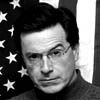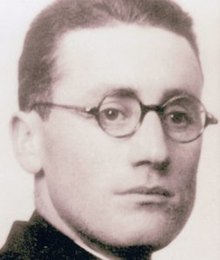- 30 Aug 2007 00:49
#1310007
Hope Kylie won't hate me for posting a long article which might (or might not) be relevant here:
Classical Liberalism
Noam Chomsky
Classical liberalism asserts as its major idea an opposition to all but the most restricted and minimal forms of state intervention in personal or social life. Well this conclusion is quite familiar, however the reasoning that leads to it is less familiar and, I think, a good deal more important than the conclusion itself.
One of the earliest and most brilliant expositions of this position is in Wilhelm Von Humboldt's "Limits of State Action", which was written in 1792, though not published for 60 or 70 years after that. In his view: "The state tends to make man an instrument to serve its arbitrary ends, overlooking his individual purposes. And, since man is in his essence a free, searching, self-perfecting being, it follows that the state is a profoundly anti-human institution." That is, its actions, its existence, are ultimately incompatible with the full harmonious development of human potential in it's richest diversity. Hence incompatible with what Humboldt, and in the following century Marx, Bakunin, Mill, and many others, what they see as the true end of man. And for the record I think that this is an accurate description.
The modern conservative tends to regard himself as the lineal descendant of the classical liberal in this sense, but I think that can be maintained only from an extremely superficial point of view, as one can see by studying more carefully the fundamental ideas of classical libertarian thought as expressed, in my opinion, in its most profound form by Humboldt.
I think the issues are of really quite considerable contemporary significance, and if you don't mind what may appear to be a somewhat antiquarian excursion, I'd like to expand on them.
For Humboldt as for Rousseau, and before him the Cartesians, man's central attribute is his freedom. "To enquire and to create, these are the centers around which all human pursuits more or less directly revolve." "But," he goes on to say, "all moral cultures spring solely and immediately from the inner life of the soul and can never be produced by external and artificial contrivances. The cultivation of the understanding, as of any man's other faculties, is generally achieved by his own activity, his own ingenuity, or his own methods of using the discoveries of others."
Well, from these assumptions, quite obviously, an educational theory follows and he develops it, but I won't pursue it. But also far more follows. Humboldt goes on to develop at least the rudiments of a theory of exploitation and of alienated labour that suggests in significant ways, I think, the early Marx. Humboldt in fact continues these comments that I quoted, about the cultivation of the understanding through spontaneous action, in the following way: He says, "Man never regards what he possesses as so much his own, as what he does and the laborer who tends the garden is perhaps in a truer sense its owner, than the listless voluptuary who enjoys its fruits. And since truly human action is that which flows from inner impulse, it seems as if all peasants and craftsmen might be elevated into artists, that is men who love their labor for its own sake, improve it by their own plastic genius and inventive skill, and thereby cultivate their intellect, ennoble their character, and exult and refine their pleasures; and so humanity would be ennobled by the very things which now, though beautiful in themselves, so often go to degrade it." "Freedom is undoubtedly the indispensable condition without which even the pursuits most congenial to individual human nature can never succeed in producing such salutary influences. Whatever does not spring from a man's free choice, or is only the result of instruction and guidance, does not enter into his very being but remains alien to his true nature. He does not perform it with truly human energies, but merely with mechanical exactness. And if a man acts in a mechanical way, reacting to external demands or instruction, rather than in ways determined by his own interests and energies and power," he says, "we may admire what he does, but we despise what he is."
For Humboldt then, man is born to enquire and create, and when a man or a child chooses to enquire or create out of its own free choice, then he becomes, in his own terms, "an artist rather than a tool of production or a well trained parrot". This is the essence of his concept of human nature. And I think that it is very revealing and interesting compared with Marx, with the early Marx manuscripts, and particularly his account of "the alienation of labour when work is external to the worker, not part of his nature, so that he does not fulfill himself in his work but denies himself and is physically exhausted and mentally debased. This alienated labour that casts some of the workers back into a barbarous kind of work and turns others into machines, thus depriving man of his species character, of free conscious activity and productive life." Recall also Marx's well known and often quoted reference to a higher form of society, in which labour has become not only a means of life but also the highest want in life. And recall also his repeated criticism of the specialized labour which, "mutilates the worker into a fragment of a human being, degrades him to become a mere appurtenance of the machine, makes his work such a torment that its essential meaning is destroyed, estranges from him the intellectual potentialities of the labour process in very proportion to the extent to which science is incorporated into it as an independent power."
Robert Tucker for one has rightly emphasized that Marx sees the revolutionary more as a frustrated producer, than as a dis-satisfied consumer. And this, far more radical, critique of capitalist relations of production, flows directly, often in the same words, from the libertarian thought of The Enlightenment. For this reason, I think, one must say that classical liberal ideas, in their essence though not in the way they developed, are profoundly anti-capitalist. The essence of these ideas must be destroyed for them to serve as an ideology of modern industrial capitalism.
Writing in the 1780's and early 1790's, Humboldt had no conception of the forms that industrial capitalism would take. Consequently, in this classic of classical liberalism, he stresses the problem of limiting state power, and he is not overly concerned with the dangers of private power. The reason is that he believes in and speaks of the essential equality of condition of private citizens, and of course he has no idea, writing in 1790, of the ways in which the notion of private person would come to be reinterpreted in the era of corporate capitalism. "He did not foresee", I now quote the anarchist historian Rudolf Rocker: "he did not foresee that democracy, with its model of equality of all citizens before the law, and liberalism, with its right of man over his own person, both would be wrecked on the realities of capitalistic economy." Humboldt did not foresee that in a predatory capitalistic economy, state intervention would be an absolute necessity. To preserve human existence. To prevent the destruction of the physical environment. I speak optimistically of course.
As Karl Polanyi for one has pointed out: "The self-adjusting market could not exist for any length of time without annihilating the human and natural substance of society. It would have physically destroyed man and transformed his surroundings into a wilderness." I think that's correct. Humboldt also did not foresee the consequences of the commodity character of labor. The doctrine, again in Polanyi's words, "that it is not for the commodity to decide where it should be offered for sale, to what purpose it should be used, at what price it should be allowed to change hands, in what manner it should be consumed or destroyed." But the commodity in this case is of course human life. And social protection was therefore a minimal necessity to constrain the irrational and destructive workings of the classical free market.
Nor did Humboldt understand in 1790 that capitalistic economic relations perpetuated a form of bondage which, long before that in fact, as early as 1767, Simon Linguet had declared to be "even worse than slavery," writing :"it is the impossibility of living by any other means that compels our farm labourers to till the soil, whose fruits they will not eat, and our masons to construct buildings in which they will not live. It is want that drags them to those markets where they await masters, who will do them the kindness of buying them. It is want that compels them to go down on their knees to the rich man in order to get from him permission to enrich him. What effective gain has the suppression of slavery brought him? 'He is free,' you say. That is his misfortune. These men, it is said, have no master. They have one, and the most terrible, the most imperious of masters: that is, need. It is this that that reduces them to the most cruel dependence." And if there is something degrading to human nature in the idea of bondage, as every spokesman for the enlightenment would insist, then it would follow that a new emancipation must be awaited, what Fourier referred to as the third and last emancipatory phase of history. The first having made serfs out of slaves, the second wage earners out of serfs and the third which will transform the proletariat freemen by eliminating the commodity character of labour, ending wage slavery and bringing the commercial, industrial and financial institutions, under democratic control.
These are all things that Humboldt in his classical liberal doctrine did not express and didn't see, but I think that he might have accepted these conclusions. He does, for example, agree that state intervention in social life is legitimate "if freedom would destroy the very conditions without which not only freedom but even existence itself would be inconceivable" which are precisely the circumstances that arise in an unconstrained capitalist economy and he does, as in remarks that I quoted, vigorously condemn the alienation of labour. In any event, his criticism of bureaucracy and the autocratic state stands as a very eloquent forewarning of some of the most dismal aspects of modern history, and the important point is that the basis of his critique is applicable to a far broader range of coercive institutions than he imagined, in particular to the institutions of industrial capitalism.
Though he expresses a classical liberal doctrine, Humboldt is no primitive individualist, in the style of for example Rousseau. So Rousseau extols the savage who lives within himself, but Humboldt's vision is entirely different. He sums up his remarks as follows, he says "the whole tenor of the ideas and arguments unfolded in this essay might fairly be reduced to this: that while they would break all fetters in human society, they would attempt to find as many new social bonds as possible. The isolated man is no more able to develop than the one who is fettered." and he in fact looks forwards to a community of free association, without coercion by the state or other authoritarian institutions, in which free men can create and inquire, achieve the highest development of their powers. In fact, far ahead of his time, he presents an anarchist vision that is appropriate, perhaps, to the next stage of industrial society. We can perhaps look forward to a day, when these various strands will be brought together within the framework of libertarian socialism, a social form that barely exists today, though its elements can perhaps be perceived, for example in the guarantee of individual rights, that has achieved so far its fullest realization (though still tragically flawed in the western democracies), or in the Israeli kibbutzim, or in the experiments with workers' councils in Yugoslavia, or in the effort to awaken popular consciousness and to create a new involvement in the social process, which is a fundamental element in the third world revolutions, coexisting uneasily with indefensible authoritarian practice.
So let me summarize this first point. The first point of the state that I want to setup as a reference, classical liberal, its doctrine is that the state function should be drastically limited, but this familiar characterization is a very superficial one. More deeply, the classical liberal view develops from a certain concept of human nature: one that stresses the importance of diversity and free creation. And therefore this view is in fundamental opposition to industrial capitalism, with its wage slavery, its alienated labour and its hierarchic and authoritarian principles of social and economic organisation. At least in its Humboldtian form, classical liberal thought is opposed as well to the concepts of possessive individualism, which are intrinsic to capitalist ideology. So it seeks to eliminate social fetters, but to replace them by social bonds, not by competitive greed, not by predatory individualism, not of course by corporate empires, state or private. Classical libertarian thought seems to me therefore to lead directly to libertarian socialism or anarchism, if you like, when combined with an understanding of industrial capitalism.


















 - By KurtFF8
- By KurtFF8